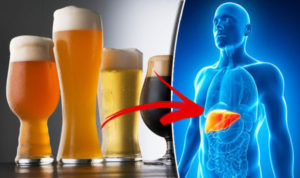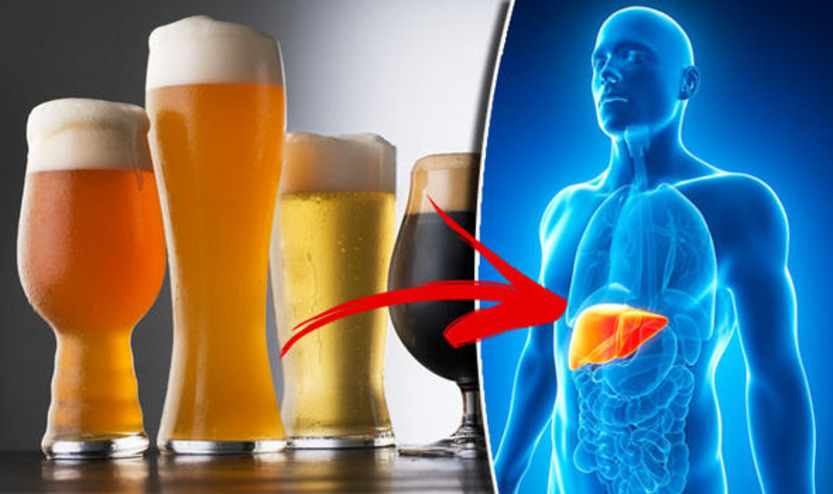
Drinking too much – on a single occasion or over time – can take a serious toll on your health. Here’s how alcohol can affect your body:
Brain:
Alcohol interferes with the brain’s communication pathways, and can affect the way the brain looks and works. These disruptions can change mood and behavior, and make it harder to think clearly and move with coordination.
Heart:
Drinking a lot over a long time or too much on a single occasion can damage the heart, causing problems including:
- Cardiomyopathy – Stretching and drooping of heart muscle
- Arrhythmias – Irregular heart beat
- Stroke
- High blood pressure
Liver:
Heavy drinking takes a toll on the liver, and can lead to a variety of problems and liver inflammations including:
- Steatosis, or fatty liver
- Alcoholic hepatitis
- Fibrosis
- Cirrhosis
Pancreas:
Alcohol causes the pancreas to produce toxic substances that can eventually lead to pancreatitis, a dangerous inflammation and swelling of the blood vessels in the pancreas that prevents proper digestion.

Cancer:
Source: National Cancer Institute — see https://www.cancer.gov/about-cancer/causes-prevention/risk/alcohol/alcohol-fact-sheet:
Based on extensive reviews of research studies, there is a strong scientific consensus of an association between alcohol drinking and several types of cancer. In its Report on Carcinogens, the National Toxicology Program of the US Department of Health and Human Services lists consumption of alcoholic beverages as a known human carcinogen. The research evidence indicates that the more alcohol a person drinks—particularly the more alcohol a person drinks regularly over time—the higher his or her risk of developing an alcohol-associated cancer. Based on data from 2009, an estimated 3.5 percent of all cancer deaths in the United States (about 19,500 deaths) were alcohol related.
Clear patterns have emerged between alcohol consumption and the development of the following types of cancer:
- Head and neck cancer: Alcohol consumption is a major risk factor for certain head and neck cancers, particularly cancers of the oral cavity (excluding the lips), pharynx (throat), and larynx (voice box). People who consume 50 or more grams of alcohol per day (approximately 3.5 or more drinks per day) have at least a two to three times greater risk of developing these cancers than nondrinkers. Moreover, the risks of these cancers are substantially higher among persons who consume this amount of alcohol and also use tobacco.
- Esophageal cancer: Alcohol consumption is a major risk factor for a particular type of esophageal cancer called esophageal squamous cell carcinoma. In addition, people who inherit a deficiency in an enzyme that metabolizes alcohol have been found to have substantially increased risks of alcohol-related esophageal squamous cell carcinoma.
- Liver cancer: Alcohol consumption is an independent risk factor for, and a primary cause of, liver cancer (hepatocellular carcinoma). (Chronic infection with hepatitis B virus and hepatitis C virus are the other major causes of liver cancer.)
- Breast cancer: More than 100 epidemiologic studies have looked at the association between alcohol consumption and the risk of breast cancer in women. These studies have consistently found an increased risk of breast cancer associated with increasing alcohol intake. A meta-analysis of 53 of these studies (which included a total of 58,000 women with breast cancer) showed that women who drank more than 45 grams of alcohol per day (approximately three drinks) had 1.5 times the risk of developing breast cancer as nondrinkers (a modestly increased risk). The risk of breast cancer was higher across all levels of alcohol intake: for every 10 grams of alcohol consumed per day (slightly less than one drink), researchers observed a small (7 percent) increase in the risk of breast cancer.The Million Women Study in the United Kingdom (which included more than 28,000 women with breast cancer) provided a more recent, and slightly higher, estimate of breast cancer risk at low to moderate levels of alcohol consumption: every 10 grams of alcohol consumed per day was associated with a 12 percent increase in the risk of breast cancer.
- Colorectal cancer: Alcohol consumption is associated with a modestly increased risk of cancers of the colon and rectum. A meta-analysis of 57 cohort and case-control studiesthat examined the association between alcohol consumption and colorectal cancer risk showed that people who regularly drank 50 or more grams of alcohol per day (approximately 3.5 drinks) had 1.5 times the risk of developing colorectal cancer as nondrinkers or occasional drinkers. For every 10 grams of alcohol consumed per day, there was a small (7 percent) increase in the risk of colorectal cancer.
Immune System:
Drinking too much can weaken your immune system, making your body a much easier target for disease. Chronic drinkers are more liable to contract diseases like pneumonia and tuberculosis than people who do not drink too much. Drinking a lot on a single occasion slows your body’s ability to ward off infections – even up to 24 hours after getting drunk.




